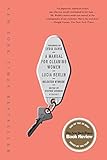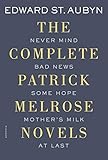In June of 2016, I started a podcast with my friend Jesse called Fan’s Notes, about our two favorite topics of discussion: books and basketball. To date, we’ve recorded 58 episodes, a rate of about one book every two weeks. The project has been somewhat time-consuming, and extremely unlucrative, but it has been hugely rewarding in terms of reading. A quick scan through our list of published episodes in 2018 (the project comes in handy here as a kind of diary of my year’s reading) reminds me of many new favorites: Elif Batuman’s The Idiot and Lucia Berlin’s A Manual for Cleaning Women among them.



As a fairly slow reader, the podcast has benefited—dictated, really—my reading list, I think to the benefit of my writing. Not just in terms of regularly discussing literature in a somewhat structured (if beer-accompanied) format, but also in terms of simply venturing a little beyond the confines of my usual taste. I would not otherwise, probably, have sat down and read straight through two collections of Borges, would have been content with my passing familiarity with the greatest hits: “The Aleph,” “The Circular Ruins,” “The Garden of Forking Paths.” Like most people, as much I intend to read new things, the attention-draining demands of life always make it easy to stick with what I’m confident will bring a good return on my reading time. That Patrick Melrose collection on the bookshelf, for example, is a constant familiar lure and pleasurable threat to experiencing novel novels.

Of all the excellent books the podcast introduced me to in 2018, none was more unexpected or exciting than Mary McCarthy’s The Company She Keeps. I’d been vaguely aware of McCarthy as someone in the 20th-century literary landscape, had heard of The Group. But I’d never read her, and I’d never heard of this novel, her first, published in 1942. That this book was published 77 years ago, going on a century, is truly hard to believe—it is one of the most modern novels I’ve read in a long time, more modern than most modern novels.
The book’s political concerns are shockingly timely, somehow prefiguring #MeToo and DSA 80 years ahead of schedule. The Company She Keeps follows its protagonist, Margaret Sargent, a young bohemian Trotskyite, as she destroys her marriage, finds odd jobs to make ends meet, engages in a series of love affairs, and navigates the ’30s-era New York communist scene. Margaret’s sexual and political agency feel bracing, radical even by today’s standards. She is accorded the traditionally male prerogative to destroy and rebuild her life as she sees fit—to make, at times, foolish and selfish and self-destructive choices—without apology or justification.
The novel’s form, too, is unusual and daring. It comprises six long, sometimes novella-length chapters, stories all published independently in outlets like The Partisan Review. Despite being anchored by Margaret’s consciousness and concerns, the POV moves from third person to first to second. In one story, Margaret only appears halfway through and functions as the antagonist. McCarthy employs every possible vantage point to probe Margaret’s character—her principled bravery, her fears and anxieties, her generosity and snobbish prejudices—in a kind of dialectic analysis mirroring the Marxist and Freudian thought that dominated both the author and characters’ intellectual circles. As soon as Margaret believes a proposition about herself or the world to be true, something else proves it false, and the two truths must be synthesized in order to allow her to edge forward. Margaret’s mental landscape—and this is where the real action of the book takes place—is like an impossibly large mansion of locked rooms. Unlocking one door, she only finds herself trapped in another.
The book posits self-awareness as a kind of comic hell. In the memorable conclusion to “Portrait of the Intellectual as a Yale Man,” the main character, Jim Barnett, a smug leftist (and avatar of white male privilege decades before that was a phrase in circulation) ruefully considers his extramarital fling with Margaret:
What did he regret, he asked himself. If he had to do it over again, he would make the same decision. What he yearned for, perhaps, was the possibility of a decision, the instant of a choice, when a man stands at a crossroads and knows he is free. Still, even that had been illusory. He had never been free, but until he had tried to love the girl, he had not known he was bound. It was self-knowledge she had taught him. She had shown him the cage of his own his nature. He had accommodated himself to it, but he could never forgive her. Through her, he had lost his primeval innocence, and he would hate her forever, as Adam hates Eve.
Once the door to honest introspection is cracked, it cannot be closed again, can only be flung wider and wider as each confounding truth barges through. It turns out a little self-perception goes a long way, and a lot goes a little.
The comic, brutal irony of McCarthy’s narrative regard—toward Margaret and the motley cast of secondary characters—is what struck me initially as most bracingly modern about the novel. As I read on, however, I began to question this proposition. I’m not sure, in fact, how much patience modern readers would have for a narrative voice this unsparing, or a protagonist as flawed and vexing as Margaret Sargent. She is not, in the horrible modern formulation, relatable. She is not nice, and neither, to its credit, is The Company She Keeps. This is a book that pulls no punches—about art, politics, psychology, and human nature. This is a book that tells the truth because there’s something at stake, politically and personally, something that would be lost by any intellectual fudging or false comfort. In a period of such rank political and cultural dishonesty, we need books like this—now more than ever, I want to cornily say, though probably this has always been the case. There have probably never been enough books like this.
More from A Year in Reading 2018
Don’t miss: A Year in Reading 2017, 2016, 2015, 2014, 2013, 2012, 2011, 2010, 2009, 2008, 2007, 2006, 2005
The post A Year in Reading: Adam O’Fallon Price appeared first on The Millions.
from The Millions http://bit.ly/2A57oD7

No comments:
Post a Comment